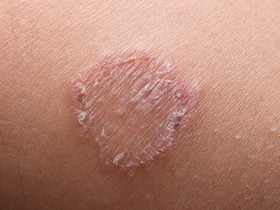Eczema also referred to as atopic dermatitis is a chronic condition that result in skin irritation and inflammation. Although researchers are still not certain on what the exact cause of the condition is, evidence suggest that changes in genes, problem with immune system, and exposure to environmental triggers all contribute to the development of eczema. A 2010 research review showed that it may affect up to 30 percent of children.
It is common for the symptoms of eczema to appear during early infancy or childhood. It may also show up in adolescents and adults who didn’t have eczema as children. Even though it is most commonly linked to genetics, not everyone who develops eczema has a family history of the condition. However, having a blood relative who has eczema increases the chances that you will develop it too.
There is strong scientific evidence that supports the existence of a genetic predisposition to eczema. Scientific studies done on patients all over the world have found evidence of mutation in several genes that most likely contributes to the condition.
Continue reading this article, and you will understand the relationship between eczema and genetics, also other possible causes and triggers for this condition. You’ll also read about preventive measures for eczema.
What is The Relationship between Eczema and Genetics according to Research?

Multiple research is done every year on what the cause of eczema is, and data indicates that several genes may be associated with eczema. A 2010 research review that analyzed the entire human genome, found several genes which significantly alter the composition and function of the skin in people with eczema.
These genes in some cases directly affect the skin. While in some other instances they affect the immune system, causing allergic reactions on the skin or inflammatory skin responses.













